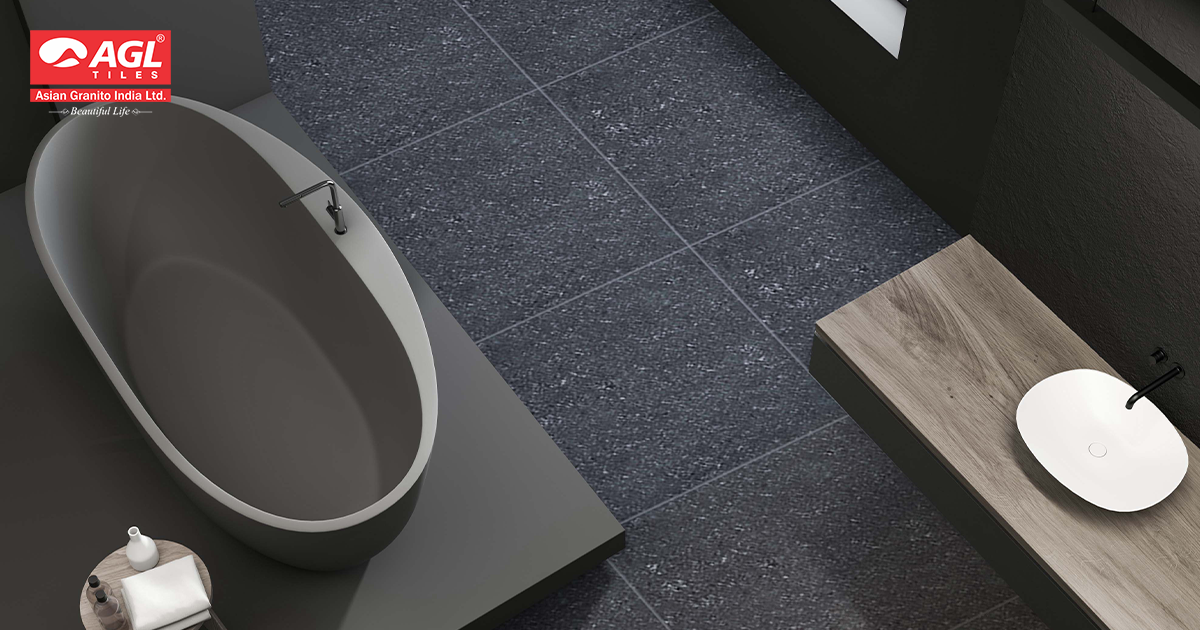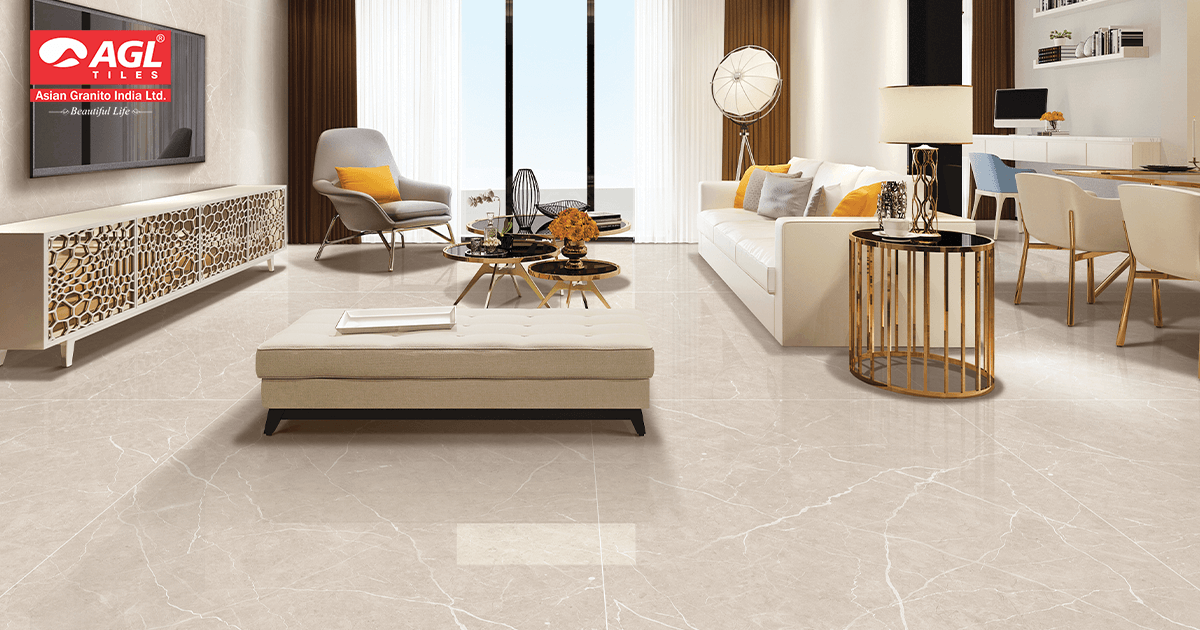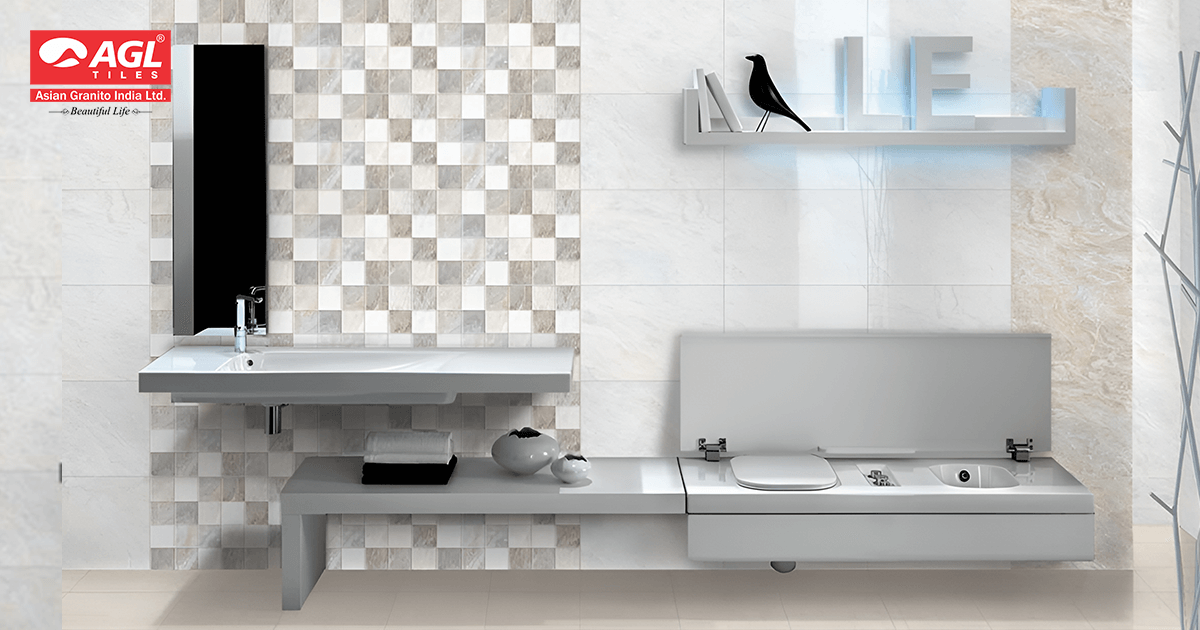-142%

When it comes to outdoor staircases, choosing the right tile material is crucial as it can impact the safety, durability, and aesthetic appeal of your stairs. The market is full of different options to select from. AGL Tiles has done the primary work of researching and coming up with the best tiles for stairs.
Here are some pros and cons of different floor tiles that go great on a staircase.
Table of Contents
Marble
Marble is a natural material and has been in use for hundreds and thousands of years now. It is a popular option for stair tiles.
Pros: Marble is known for its natural beauty and elegance. It is durable and can withstand harsh weather conditions. It is also relatively slip-resistant.
Cons: Marble can be expensive and is prone to scratches, stains, and chipping. It may require regular maintenance to keep its shine and prevent discolouration.
Quartz
Quartz is a durable and low-maintenance material that is suitable for stair use due to its strength and slip-resistant properties. AGL Tiles also offers a range of design options.
Pros: Quartz is an engineered stone that is durable, scratch resistant, and requires little maintenance. It is also available in a wide range of colours and designs, making it a versatile option.
Cons: It can be expensive compared to other tile materials, and its colour may fade over time with exposure to sunlight. So, it is a good option for indoor stair tiles but not for outdoor use.
Vitrified Tiles
Vitrified tiles are ceramic tiles that have been processed to have low porosity and high strength, resulting in a glossy finish and resistance to water, stains, and scratches.
Pros: Vitrified tiles are made from a blend of clay and silica that is fired at high temperatures, making them resistant to water, scratches, and stains. They come in a variety of designs and are easy to clean.
Cons: They can be slippery when wet, and their colour may fade over time. Vitrified tiles are hard, thus it will be noisy when walked upon.
Ceramic Tiles
Ceramic tiles are a type of hard, durable material commonly used for flooring, walls, and other surfaces. They are made from clay that is fired at high temperatures and comes in a variety of colours, shapes, and sizes.
Pros: Ceramic tiles are affordable, easy to install, and come in a variety of colours and designs. They are also durable and require little to no maintenance.
Cons: They can be slippery when wet, and their glaze may chip or crack over time.
Porcelain Tiles
Porcelain tiles are a type of ceramic tile made from dense, fine-grained clay that is fired at high temperatures. They are durable, water-resistant, and come in a wide range of styles and sizes.
Pros: Porcelain tiles are dense and durable, making them resistant to water, stains, and scratches. They are available in a variety of designs and colours, and some types have slip-resistant properties as well.
Cons: They can be expensive compared to other tile materials, and their installation may require specialized tools and skills for the best result.
Large Slab Tiles (MarbleX)
MarbleX is an artificial marble manufactured by AGL using the best technology in the world. It overcomes all the limitations of natural marble and offers a more affordable option. In other words, it's an alternative to the marble flooring.
Pros: MarbleX is a cost-effective alternative to natural marble. It is durable, easy to maintain, and comes in a variety of colours & patterns and mimics the look and feel of marble. It is heat and freeze resistant as well.
Cons: It may not have the same natural beauty as real marble. Might not increase the value of the house as the real marble does.
Anti-Bacterial Tiles
This is a type of tile by AGL that resists bacteria and promotes hygiene up to a great extent. It is meant to create spaces more hygienic than ever and is suitable for both commercial and home use.
Pros: Anti-bacterial tiles can limit bacterial growth and spread, leading to improved hygiene and reduced risk of infection. They are anti-skid, safe for children, eco-friendly and long-lasting.
Cons: These tiles can cost more than any ordinary floor tiles, owing to their anti-bacterial properties. May also come in a limited number of designs, colours and patterns.
Conclusion
In the end, the best tile material for stairs depends upon your personal preference and budget. It's best to consider all the options discussed above and carefully compare the pros and cons before making a choice. Installing stair tiles is a type of investment that must last for years to come and selecting the best tiles for stairs can be a great investment.
AGL helps you with this by offering a ton of stair tiles options with a ton of designs and colours, thus giving you only the best.
FAQs
Porcelain tiles or natural stone tiles such as marble or quartz with a textured surface are best for outdoor stairs. They provide slip resistance, durability, and weather resistance, making them a safe and practical choice for outdoor use.
Yes, it's possible to tile the outside steps. Tiling can improve the appearance, durability, and safety of the steps, but it's important to use slip-resistant tiles and proper installation techniques.
Yes, but only if the tile's surface is smooth and lacks texture. So, get anti-slip tiles if you are planning to install them on the staircase. It will reduce the risk of slips, falls and injuries.
Tiles are generally less costly than marble, as they are made from less expensive materials and are easier to manufacture. However, the specific cost of each material can vary depending on factors such as quality, size, brand and installation fees.



